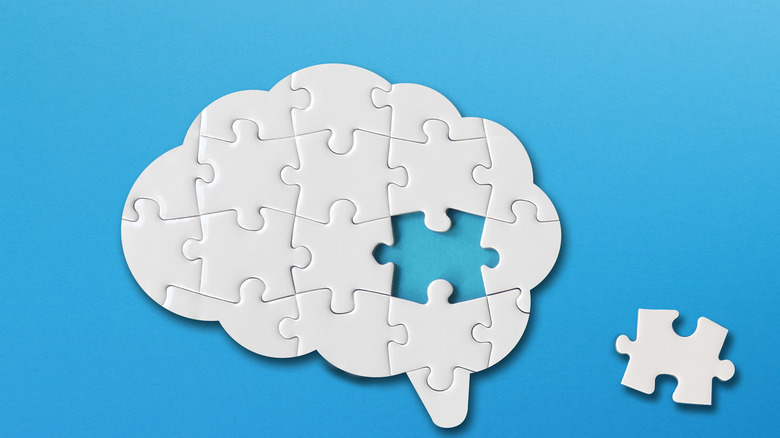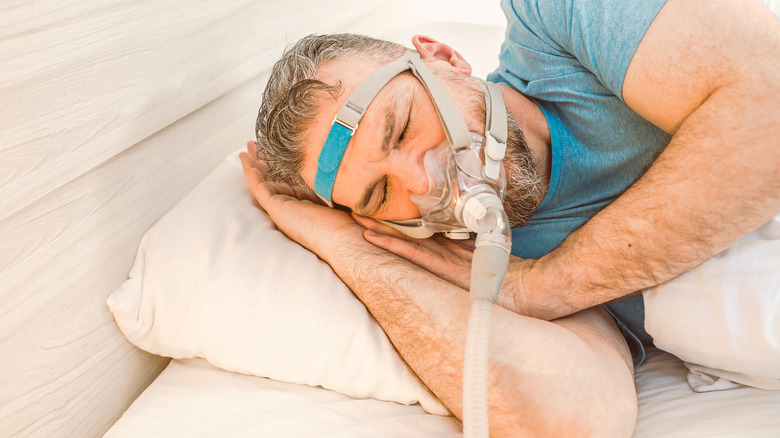New Study Digs Deeper Into Why Sleep Apnea Can Lead To Dementia
In the United States alone, 70 million people suffer from sleep-related disorders, according to the Centers for Disease Control and Prevention (CDC). Sleep apnea — a sleep disorder characterized by abnormal breathing patterns during sleep — is estimated to affect 10% to 30% of Americans (per Sleep Foundation).
The CDC explains that when we don't get adequate sleep, we become more susceptible to chronic disease, injury, and mental illness, and our overall sense of well-being can begin to suffer. In the case of sleep apnea, the complications can be dire. They may include conditions like hypertension, hypoxia, type-2 diabetes, and liver disease (per Mayo Clinic). Healthline notes that sleep apnea has also long been linked to increased occurrence of dementia and cognitive decline — a point that researchers in Australia recently took a closer look at.
In a new study led by Elizabeth Coulson, a professor at the University of Queensland's Brain Institute and School of Biomedical Sciences, researchers were able to pinpoint the relationship between sleep apnea and Alzheimer's Disease in mice (per Neuroscience News).
Hypoxia causing brain degeneration
"We found sleep deprivation alone in mice caused only mild cognitive impairment. But we developed a novel way to induce sleep-disrupted breathing and found the mice displayed exacerbated pathological features of Alzheimer's disease. It demonstrated that hypoxia — when the brain is deprived of oxygen — caused the same selective degeneration of neurons that characteristically die in dementia," Coulson said in a press release from the University of Queensland.
CPAP (continuous positive airway pressure) machines are currently the best treatment option for people suffering from sleep apnea, as they force the airway to remain open during sleep, allowing oxygen to get to the brain.
"We couldn't fit CPAP to mice, but we experimentally prevented the hypoxia and this stopped the cognitive impairment and neuron death, and also reduced the Alzheimer's pathology," said Coulson. She explains that this suggests that CPAP treatment in people with sleep apnea could reduce the occurrence of dementia.
The next step is determining the level at which hypoxia causes degeneration in human brains, and Coulson says that human trials are already underway in Brisbane and Sydney. Until then Coulson urges, "I would strongly recommend anyone with obstructive sleep apnoea use a CPAP machine to maintain cognitive function, as well as assist with other health issues."


